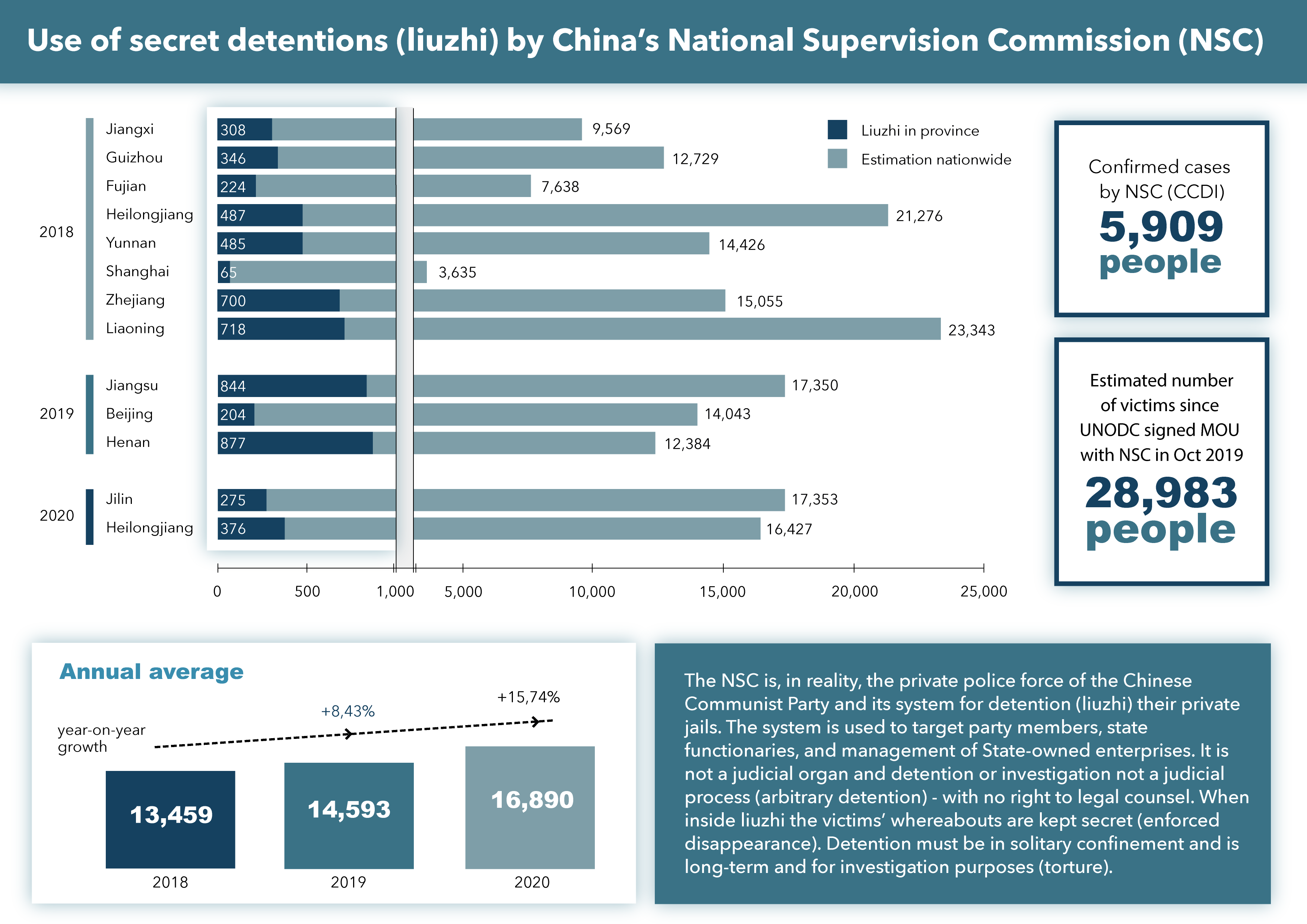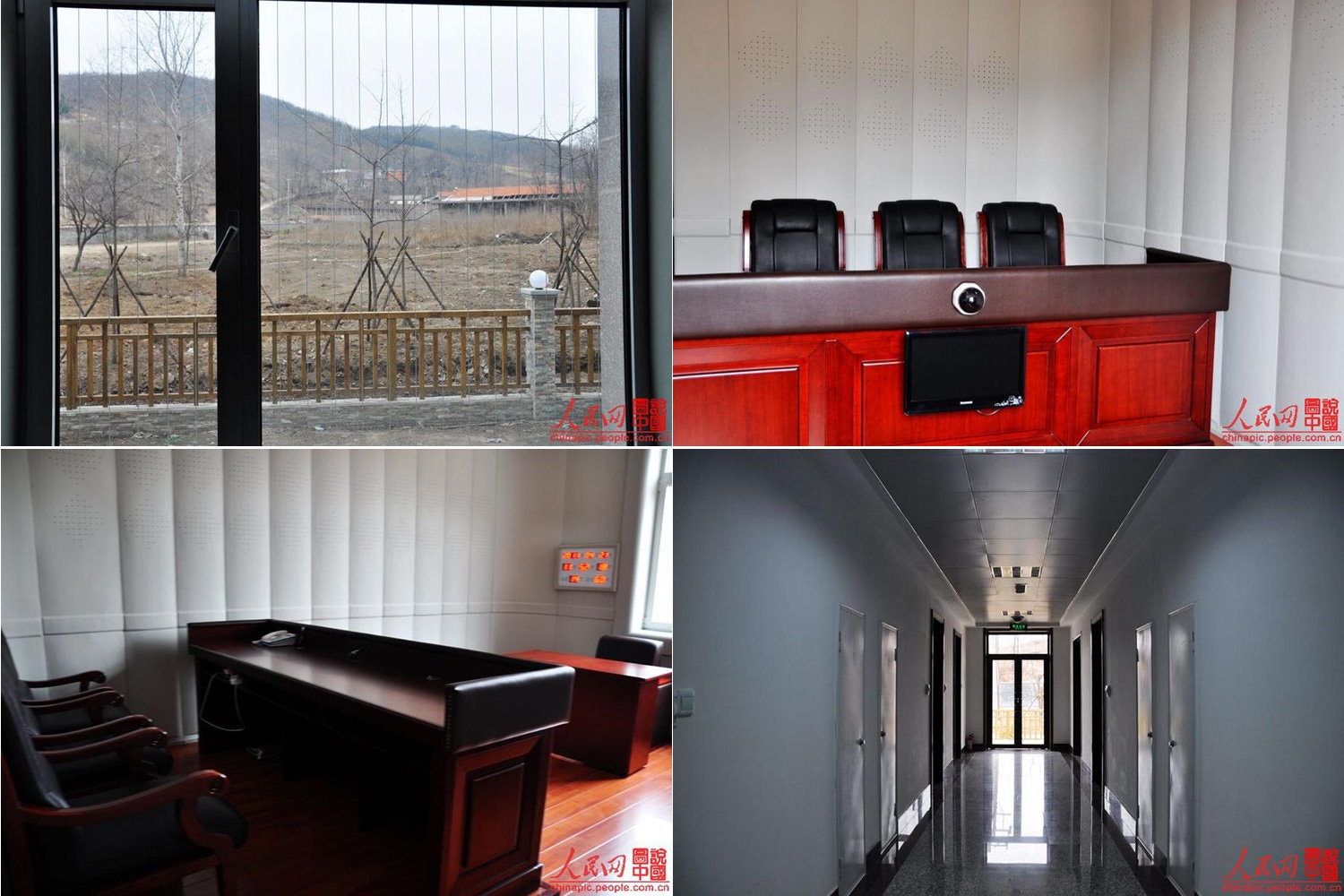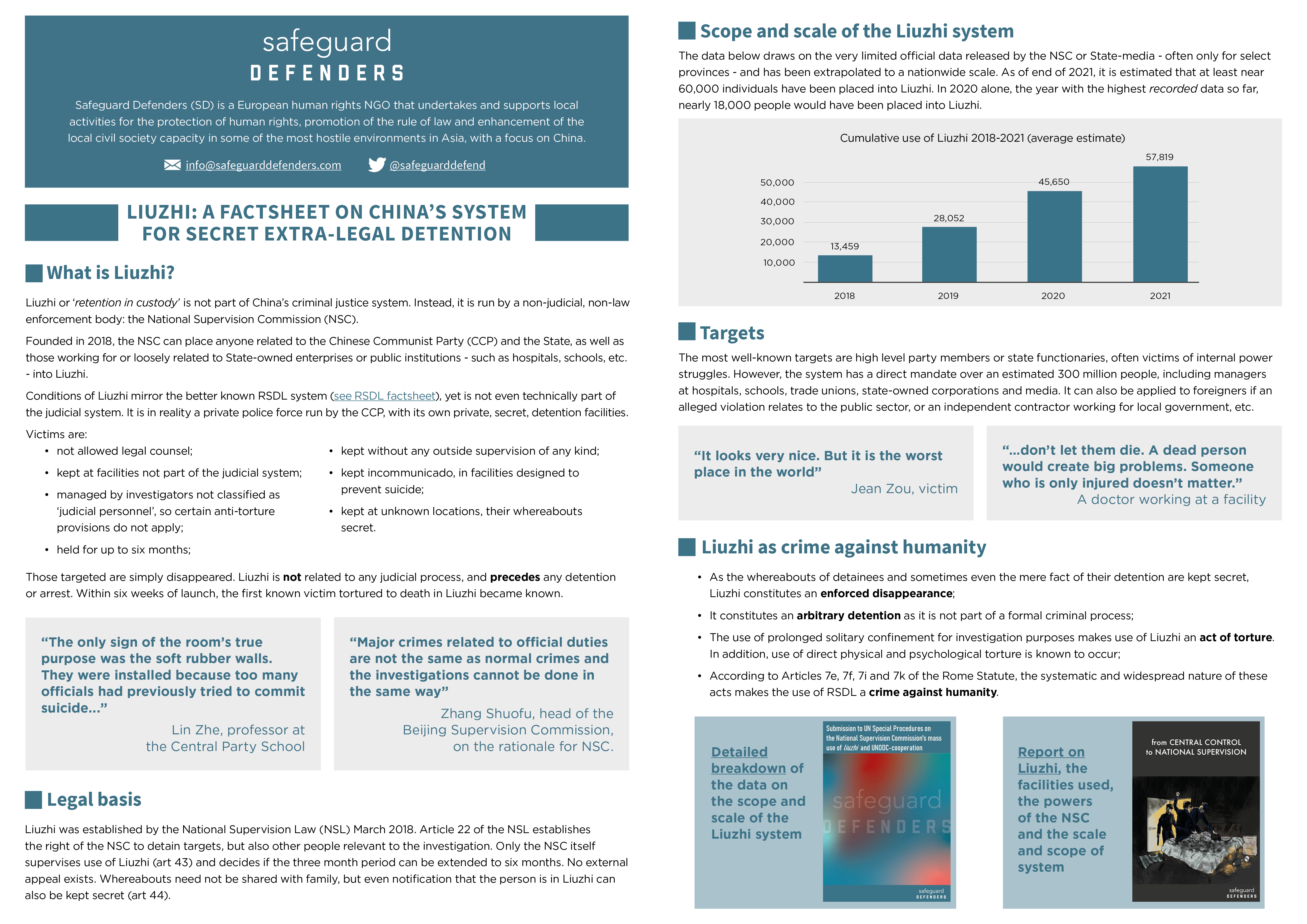Australia to end its agreement with China's Supervision Commission after prolonged campaign
Note: This is an update to an earlier post. For background, see the original post below.
Australia's Federal Police, the AFP, today in the Australian Senate confirmed, in clear language, that the agreement signed with China's National Commission of Supervision (NCS), entered into in 2018, will now lapse and not be renewed. This is the second time Senator James Paterson has brought up the issue in the Senate.
Australia is the only Western and/or democratic nation to have such an agreement, in what was a major win for China in its attempt to spread legitimacy for its recently created, entirely Party-run, body, and represents a clear threat against international rule of law.
China has actively been trying to build legitimacy around the NCS as a counterpart in international judicial cooperation by entering into cooperative agreements. Except for Australia and for a brief period, the Danish Parliamentary Ombudsman, this has been successful only in a number of non-democratic States, who can best be described as "the usual suspects". It has since been trying to make inroads into democratic countries, the key area for where such legitimacy can be gained for this new entity.
The NCS is not a judicial or law enforcement body, which many officials and politicians remain unaware of. It is also responsible for China's reprehensive FoxHunt operation that violates the national and judicial sovereignty of countries across the world. It is also guilty of a crime against humanity through its Liuzhi system for enforced disappearances.
It has been imperative to stop this development, and especially not allow inroads into democracies. This battle was key. Safeguard Defenders filed a freedom of information request to access the content of the agreement, which was, not surprisingly, denied, but in their response, the AFP showed, in writing, extensive incompetence and ignorance of their understanding of the NCS, and even referred to it as a law enforcement body, which, even clearly spelled out in Chinese law, it is not.
With this information, Safeguard Defenders set out to expose the misconduct of how this agreement was entered into. And, with questioning led by Senator James Paterson, it has now been successfully countered and terminated.
For more on this campaign, read the original post below. For more on the NCS and its Liuzhi system for mass use of enforced disappearances, see the one-page factsheet at the very bottom of this post.
***
2021-10-13
Note: NCS was previously referred to as NSC, but this has been changed for greater clarity to not confuse it with China's National Security Commission.
- AFP denies Freedom of Information request into content MOU with China’s National Supervision Commission (NSC)
- NSC is neither a judicial nor a law enforcement agency, but an extension of the CCP’s private police force CCDI operating above and beyond any limits imposed by the law both at home and abroad
- NSC stands credibly accused of crimes against humanity on multiple counts: enforced disappearances, arbitrary detention, and torture
- Similar to agreement with UNODC, MOU with AFP part of the PRC’s global push for legitimization NSC for judicial cooperation
- MOU poses serious risk to the Commonwealth’s standing and credibility as a democratic nation upholding the international rule of law and to citizens residing on its territory
On October 6th, Safeguard Defenders was informed by the Australian Federal Police (AFP) of the denial of its Freedom of Information request to retain a copy of the Memorandum of Understanding (MOU) signed between the AFP and China’s National Supervision Commission (NSC) cited exclusively in a press release dated December 13, 2018, outlining Australia’s ongoing and ample judicial cooperation efforts with the People’s Republic of China (PRC), whose agencies stand credibly accused of multiple counts of crimes against humanity and even genocide.

Makeshift room for solitary confinement. Credit: Antlem / Safeguard Defenders
Citing potential damage to the Commonwealth’s International Relations as well as operational risks to the “AFP’s relationship and interactions with a foreign law enforcement body”, the decision to exempt the MOU from publication contains multiple factual errors and highlights a continued lack of understanding of the PRC’s organizational framework and modus operandi.
Safeguard Defenders appealed the AFP’s decision to exempt the MOU from publication on October 7th, providing the AFP with evidence on the standing of and credible accusations of crimes against humanity - on no less than three different counts - by the NSC that should induce Australia to reconsider its tacit complicity and legitimization of the NSC through the MOU.
We argue that the existence of this MOU, in particular if independent verification of its terms is refused in applying cited exemptions, poses greater prejudice to the Commonwealth’s international relations and standing, in particular considering its commitment to promoting and defending the international rules-based order and universal human rights.
The FOI exemption wrongly assumes standing of the foreign counterpart NSC as a foreign law enforcement agency, whereas according to Chinese law, the NSC is not a judicial organ, and therefore not a law enforcement agency.
The National Supervision Commission (NSC) was established by the National Supervision Law (NSL) in March 2018, following an outline for such reform called for by General Secretary of the Chinese Communist Party (CCP) Xi Jinping in 2014, through the Implementation Plan for the Reform of the Party Discipline Inspection System. While technically an individual organ, the NSC does not operate independently and is merely an extension of the Chinese Communist Party’s Central Commission for Discipline Committee (CCDI). It is controlled only and directly by the Chinese Communist Party’s Standing Committee of the Politburo and firmly outside the bounds of judicial control.

Its 2018 formal constitution served to expand the extra-judicial powers of the CCDI beyond Chinese Communist Party members, now bundling most investigations over ‘duties and economic crimes’ under this extra-judicial body with extensive investigative powers, including the documented growing use of the incommunicado detention Liuzhi for a period of up to six months, without access to legal assistance or the outside world. These liuzhi detentions are by definition enforced and involuntary disappearances, and arbitrary detentions (as they do not form part of any judicial process). Sporadic data covering only a few select provinces, published by the CCDI since the launch of the NSC in 2018, shows that some 5,909 people have been placed into such secret detention. If extrapolated for nation as a whole, the number of real victims as of summer of 2021 likely stands around 50,000 to 55,000.

These operations were formally denounced by the UN Working Group on Enforced and Involuntary Disappearances in a General Allegation Letter of September 2019[1] and reiterated in its report to the 45th Human Rights Council[2]. Further review by United Nations Special Procedures are under way, based on evidence provided by Safeguard Defenders and on data from the CCDI itself, credibly accusing the NSC-CCDI of crimes against humanity according to the Rome Statute and International Criminal Court provisions to which Australia is bound.
Australia appears to be the only developed nation to currently maintain such an agreement with the PRC’s non-judicial body NSC, after Denmark did not renew its previous MOU. Safeguard Defenders continues to call for the release of the content of the cooperation agreement between the NSC and UN agency UNODC.
The NSC’s establishment as the prime anti-corruption body and its ample extra-judicial investigative powers have coincided with a global push for ‘anti-corruption’ judicial cooperation and bilateral extradition treaties under operations Skynet and Foxhunt since Xi Jinping came to power, as well as adding an increasingly extra-territorial component to its national security legislation and Criminal Law. These operations have since the NSC’s establishment been put under its command.
In this framework, the NSC has been charged with pursuing international judicial cooperation under the NSL in which the signing of cooperation agreements or Memorandum of Understanding with countries and foreign law enforcement agencies bound by the rule of law and universal human rights expressly serves as a form of legitimization for this extra-judicial organ controlled by the Chinese Communist Party, which in its official interpretation of the law, published by the CCDI, expressly outlines among the many methods it may employ to capture and repatriate ‘fugitives’ actions that clearly violate the national sovereignty of the target countries, something which the Australian government has publicly stated to have occurred on Australian soil. One former senior U.S. intelligence operative stated, in 2018, that nearly ten such kidnappings had taken place on Australian soil. In many other cases, Chinese agents roam the country to intimidate the targets to return “voluntarily”.
In its appeal, Safeguard Defenders therefore also stressed how this exemption of publication may cause irreparable harm to Australian citizens, PRC exiles and refugees, especially given the increasing extra-territorial measures inscribed in the PRC’s and Hong Kong’s national security legislation which seek to curb dissent with the Chinese Communist Party worldwide. Section 10 of the 1982 FOI expressly provides that “The person must not be subjected to any prejudice only because of the application to that conduct of any rule, guideline or practice in the unpublished information, if the person could lawfully have avoided that prejudice had he or she been aware of the unpublished information”.
Given the express declaration of willingness to resort to extra-judicial mechanisms by the NSC, information included in the MOU with the AFP regarding the procedures and processes of the cooperation might be crucial to ensuring the safety of people legally residing on the Commonwealth’s territory.
Safeguard Defenders is awaiting a response to its appeal.
For media inquiries to the Australian Federal Police, call AFP Media section at +61 (02) 6131 6333

A Liuzhi facility for secret interrogations and jailing. Credit: DuiHua / Chinapic.people.com.cn
Factsheet on NCS and Liuzhi

[1] United Nations Working Group on Enforced and Involuntary Disappearances, General Allegation 119th session (16-20 September 2019), China, A/HRC/WGEID/119/1, annex I, paras. 12–15, https://www.ohchr.org/Documents/Issues/Disappearances/Allegations/119_China.pdf.
[2] United Nations Working Group on Enforced and Involuntary Disappearances, Report of the Working Group on Enforced or Involuntary
Disappearances, A/HRC/45/13, Par. 59, 7 August 2020, https://undocs.org/pdf?symbol=en/A/HRC/45/13.